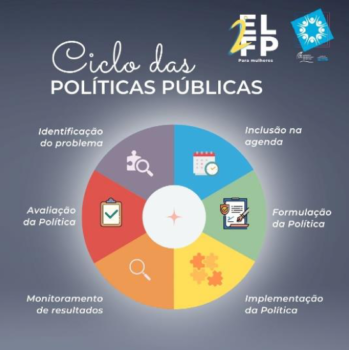
CEPPS/IRI’s Women’s Democracy Network Country Chapter in Brazil (“WDN Brazil”) recently completed a training program called “Brazil’s School of Leadership and Political Training of Women”, for young women in university and political candidates intending to run in Brazil’s upcoming elections. WDN Brazil held five virtual trainings for 114 participants (80 women plus 34 young women) to enhance the capacity of women to reach leadership positions in elected office or political parties ahead of Brazil’s October 2022 elections. Importantly, the series equipped participants with the tools to design, evaluate and advocate for gender-responsive policies on the campaign trail and once in office. Participants noted that this sort of political education is key to encouraging women to run for political leadership and motivating future generations to participate.
“Political education movements for women play an increasingly important role in increasing the number of women running for elected office,” noted one participant.
Another highlight of the series was the intergenerational collaboration that took place. Young women candidates learned alongside more experienced women and were also mentored by WDN Brazil’s executive director, Sílvia Souza, who has been part of several teams. Following the school, Silvia offered guidance and direction at the request of the candidates during their pre-campaign activities.
WDN Brazil then held an additional training, titled “Women and Public Policies,” providing participants the opportunity to develop their technical skills for drafting inclusive, gender transformative policies and to discuss the role these policies have in strengthening democratic and participatory governance.
“In all areas, we need well-designed and effective public policies for women – whether in education, health or public safety,” commented a participant.
The final training focused on preparing candidates to run effective campaigns, including how to build an effective campaign team, plan, and budget. Following this activity, participants analyzed existing policy and provided written recommendations to make it gender-responsive. Nine of these analyses were combined to create an e-book of academic policy debates along with a list of recommendations to address gender-based violence and advocate for women’s increased political and economic empowerment. The list of recommendations, which included proposals for increasing women’s leadership, developing maternal support centers for young mothers, monitoring Law nº 14.192/21 on countering political violence during the upcoming elections and requiring gender-responsive policymaking training in the training of security forces professionals, was submitted to the National Secretariat for Public Policies for Women and the Secretariat for Women of the Chamber of Deputies for additional analysis.
For more information on WDN Brazil, follow them at @WDNBrasil on Twitter or on Facebook at WDN Brasil Chapter.